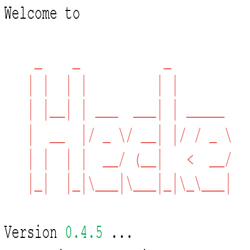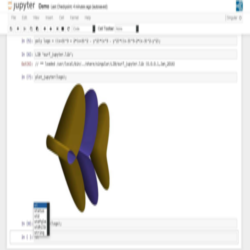For each topic, you can decide to open a static version of the jupyter notebook, powered by nbviewer. Alternatively, you can inspect the jupyter notebook directly on github.
Singular.ipynb) in a directory of your choice
(say ~/Documents);
Oscar package installed
(cf. the installation page);
in some cases, you might have to also install explicitly one of its subpackages, for
example Singular (this is accomplished by running
using Pkg; Pkg.add("Singular")) in a Julia REPL;
IJulia if it is not already installed (typically by running
using Pkg; Pkg.add("IJulia") at the Julia REPL, cf.
installation instructions),
and launch it (typically by running using IJulia; notebook());
~/Documents and click on Singular.ipynb);
you might see a pop-up with the message "Kernel not found", in which case
just select the Jupyter kernel you installed (e.g. "Julia 1.4.1") in the drop-down menu.
Click on one of the links below to filter notebooks (and re-click to disable filtering).

Hecke
|

Polymake
|

Singular
|

GAP
|